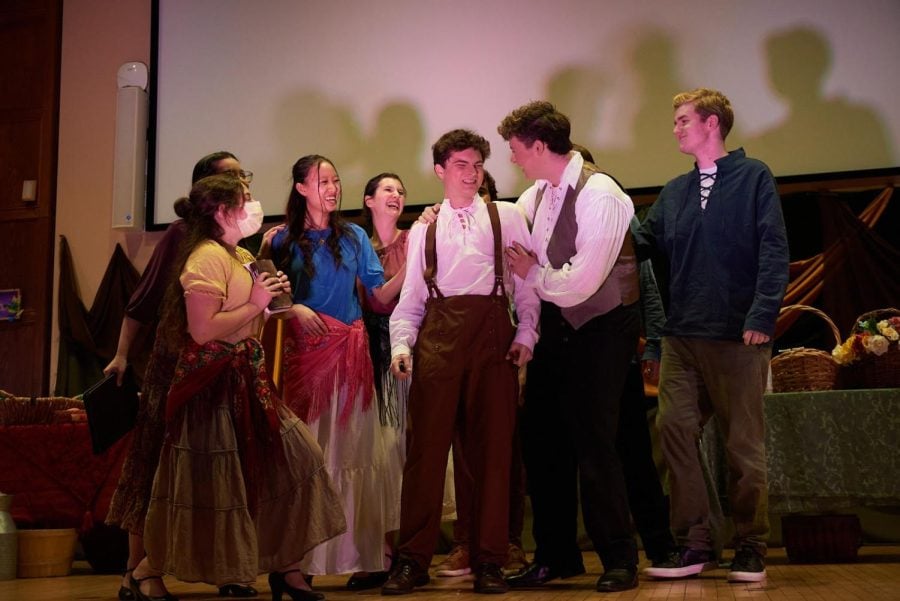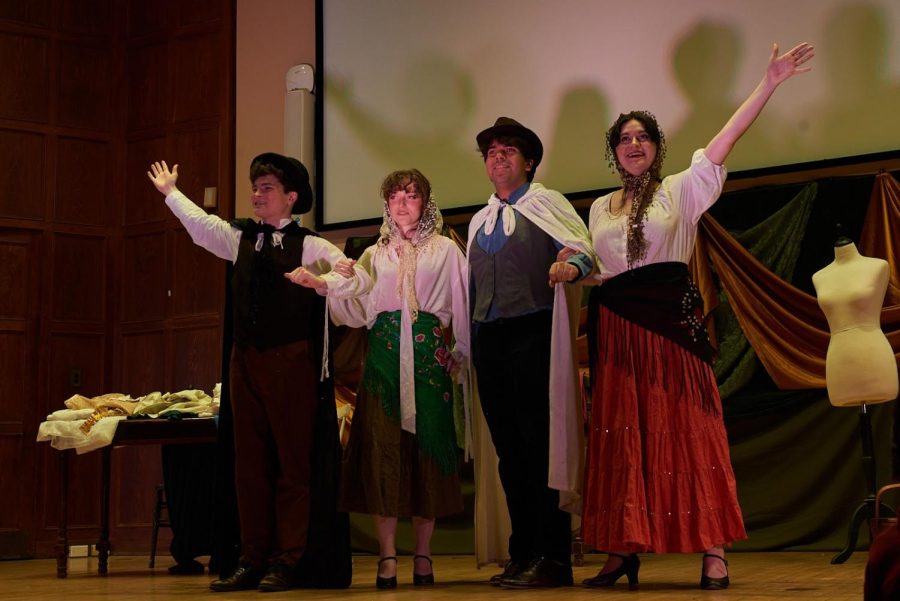‘El Barberillo de Lavapiés’ opera production intertwines romance, humor and politics
Elisa Huang/The Daily Northwestern
Northwestern’s Opera Projects for Undergraduate Singers will perform “El Barberillo de Lavapiés” on May 6 and 7 at Lutkin Hall.
May 4, 2023
Northwestern’s Opera Projects for Undergraduate Singers (OPUS) will perform “El Barberillo de Lavapiés” in Lutkin Hall this weekend.
The story of “El Barberillo de Lavapiés” takes place in 18th-century Spain during the reign of King Carlos III. La Marquesita, a noblewoman, is involved in a plan to exile the prime minister, but she’s engaged to the prime minister’s nephew, Don Luís. She enlists the help of her friend Paloma, a seamstress, and Lamparilla, a barber, to overthrow the minister. Lamparilla is in love with Paloma, and their humorous interactions juxtapose with the political storyline.
Bienen junior Doug Culclasure portrays Lamparilla. Culclasure described Lamparilla as a jack of all trades and a “goofball” akin to a “neighborhood celebrity.”
Culclasure also said he sees “interesting developments” in the relationships between elites La Marquesita and Don Luís and working-class characters Lamparilla and Paloma.
“You see … those two worlds colliding into this convoluted, dramatic, romantic, comedic, political show,” Culclasure said.
“El Barberillo de Lavapiés” is a famous historical zarzuela — a kind of Spanish musical theatre alternating dialogue and song. The work also nods to composers like Giuseppe Verdi and the bel canto styles of the time, said Bienen and SESP junior Paula Pérez-Glassner, who directs the opera.
The music will be performed in Spanish and the dialogue in translated English. Pérez-Glassner said she hopes the dialogue will help English-speaking audiences better connect with the story.
Chorus member and McCormick junior Alicia Hartono said early stages of rehearsal required working on the style of Spanish in the performance.
“We just start with reviewing music, brushing up our Spanish pronunciation, because Spanish is not really a common language in the repertoire of classical singing,” Hartono said.
Pérez-Glassner worked on translating the dialogue, which she said was a challenging process since the text involves colloquial Spanish from hundreds of years ago.
Culclasure said he grew up speaking Caribbean and Latin American Spanish, but the Castilian Spanish of the opera posed a challenge for him. He said he researched translations and focused on differences in pronunciation for the opera.
Pérez-Glassner said she wanted to choose a show that had fun characters and music that audiences would enjoy. At the same time, she wanted the show to connect to her Spanish heritage.
“I hope that this can open up exploration of different forms of opera and different backgrounds because zarzuela is very specific but not something that we get to see very often,” she said.
Email: jamiekim2025@u.northwestern.edu
Related Stories:
— ‘creating small thunder’ brings queer, rural story to Northwestern opera
— Northwestern Opera Theater explores gender, yin and yang with ‘The Magic Flute’
— Northwestern Opera Theater hosts Midwest premiere of ‘In a Grove’




